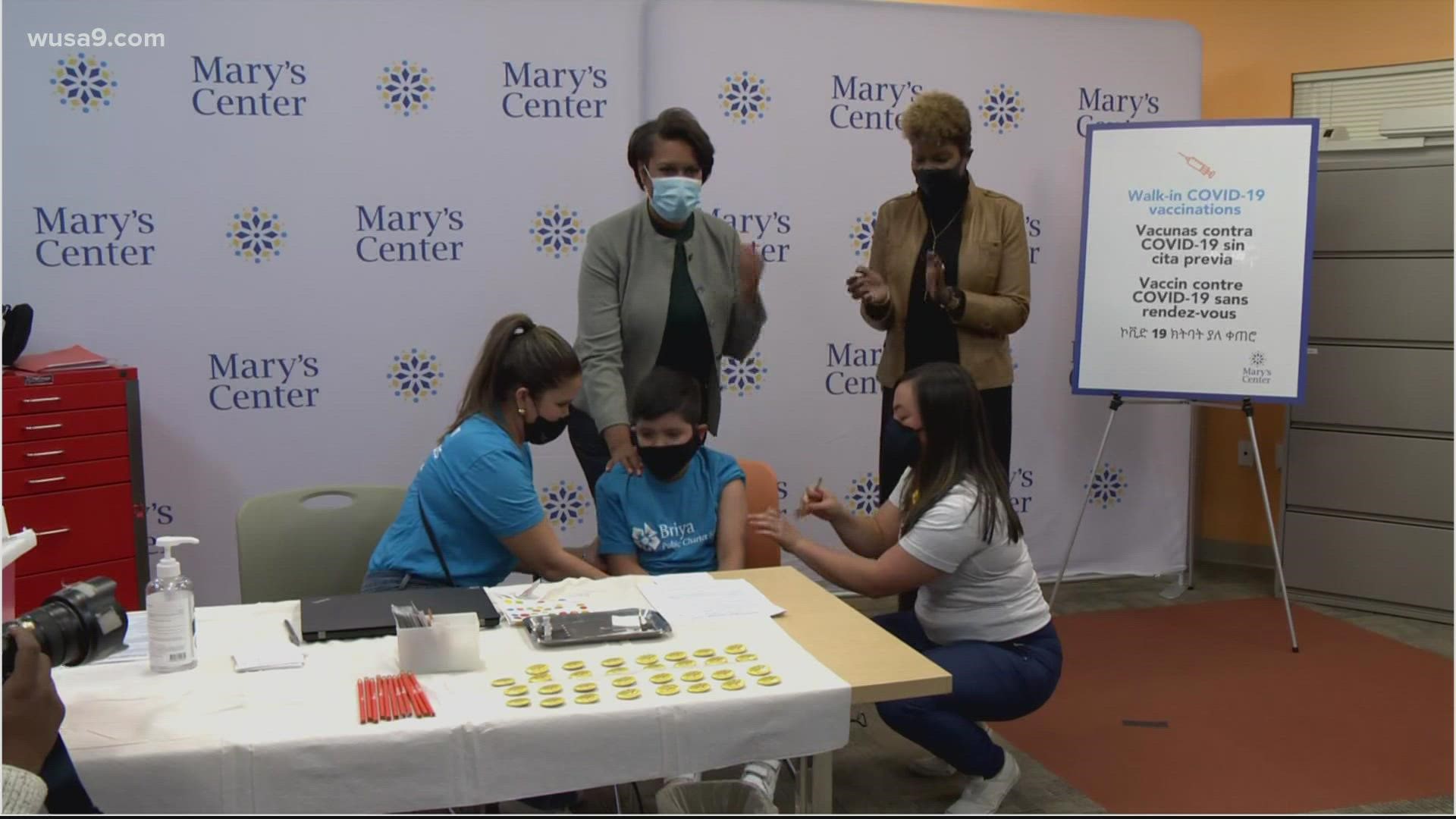WASHINGTON — Some of D.C.’s youngest residents got their first dose of the Pfizer vaccine Wednesday, with Mayor Muriel Bowser looking on.
Mary’s Center was one of the many locations around the District where the vaccine will now be available for children ages 5-11. The city said some 18,000 doses were ordered for D.C.'s kids and another 24,000 will be available through other medical entities around the District.
Carter Richardson said he was a tad nervous, getting his first dose. His mother, Angela Richardson, said quarantining was hard for her only son and despite his nerves, they’ve both been excited to get vaccinated.
“We need to take the lead and that’s something I want to do, not only for me, but for my community," Amgela Richardson said. "We are proud Ward 7 residents and want everyone east of the river to know that this is important."
The vaccine for children is still two doses, given three weeks apart. But Dr. LaQuandra Nesbitt said it’s a lower dosage for younger children and it’s important to make sure your child gets the vaccine approved for their age.
“This is considered to be about a third of the adult dose," she said. "So, five to 11-year-olds should get the vaccine that is approved for five to 11-year-olds. It is based on age, it is not based on weight."
Right now, student-athletes in D.C. schools are required to be vaccinated. Mayor Bowser said there’s no immediate plan to expand that requirement to younger students.
“We want our parents, just like we did with our adults, to have time to make the decision to get the vaccine," the mayor said. "Emphasizing however, that every day that they wait is a day that their children and their families and our community is less protected."
The majority of 5-11-year-olds live in Wards 4, 7, and 8, according to DC officials. Dr. Nesbitt said pop-up clinics will go up around the city to ensure there’s fair distribution.
“If you have an equitable program, you can design a system, but people have to want to be vaccinated," the doctor said. "But when you look at race and ethnicity data, it's not always an access issue. It is a choice issue. In terms of who is choosing to be vaccinated."
Bowser also said the vaccine has come in time for the cooler months, as well as the holidays, and she hopes parents and children will choose to get the vaccine.
“We have more vaccine product available now than we had in December of 2020, in January of 2020, and March of 2020, etc.," Nesbitt said of the rollout plan for kid vaccines. "These were all things we knew from a public health perspective that we communicated to the public, but the public still experienced as a frustration. So, the need to have a rigorous vaccine appointment scheduling system does not exist now."

